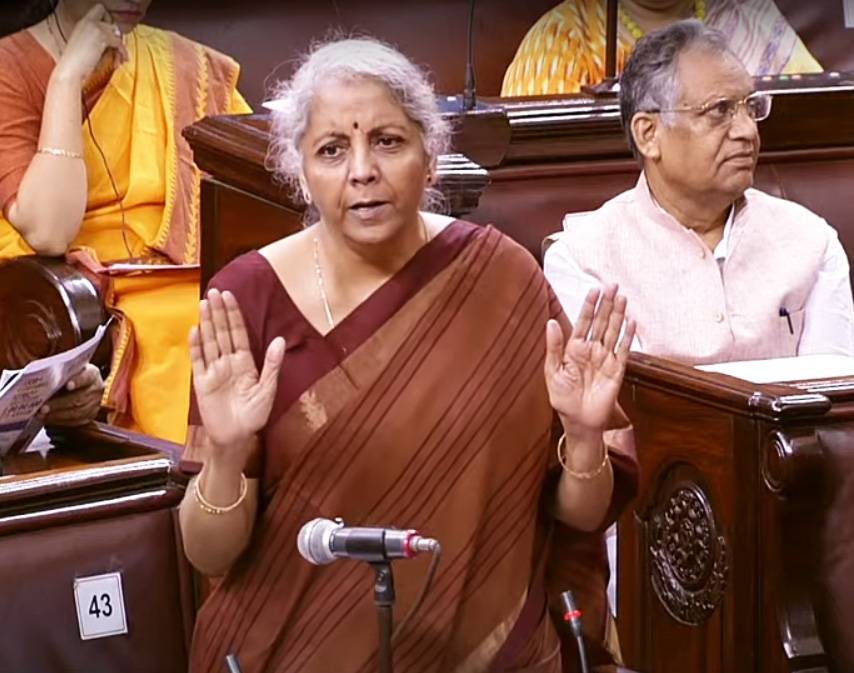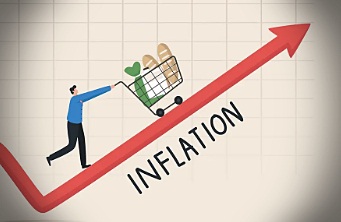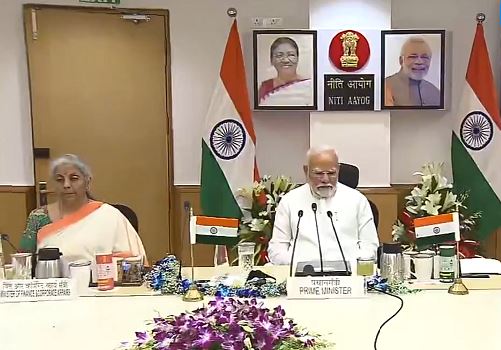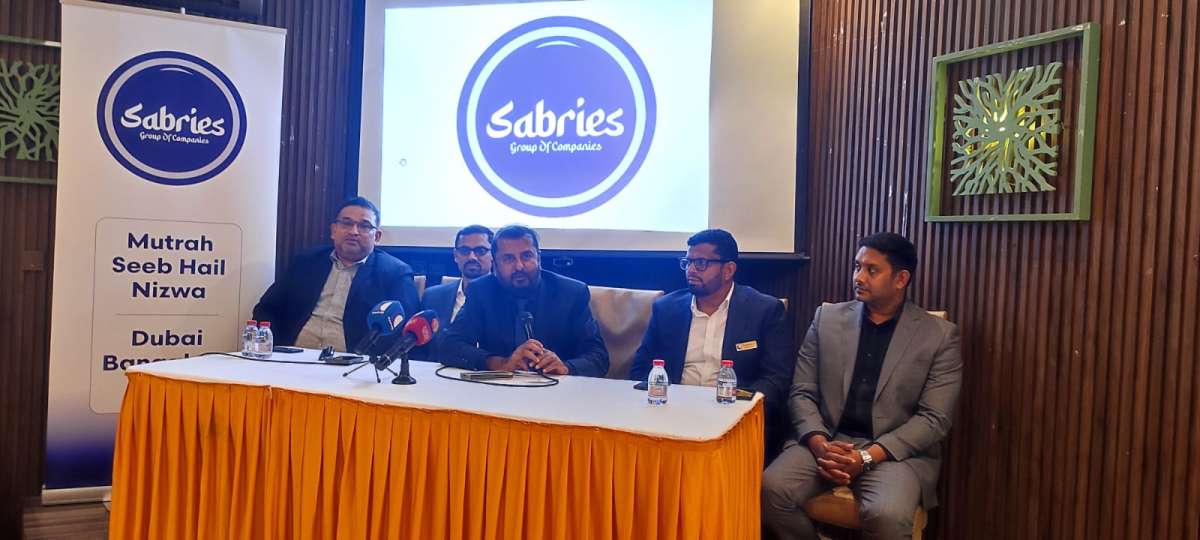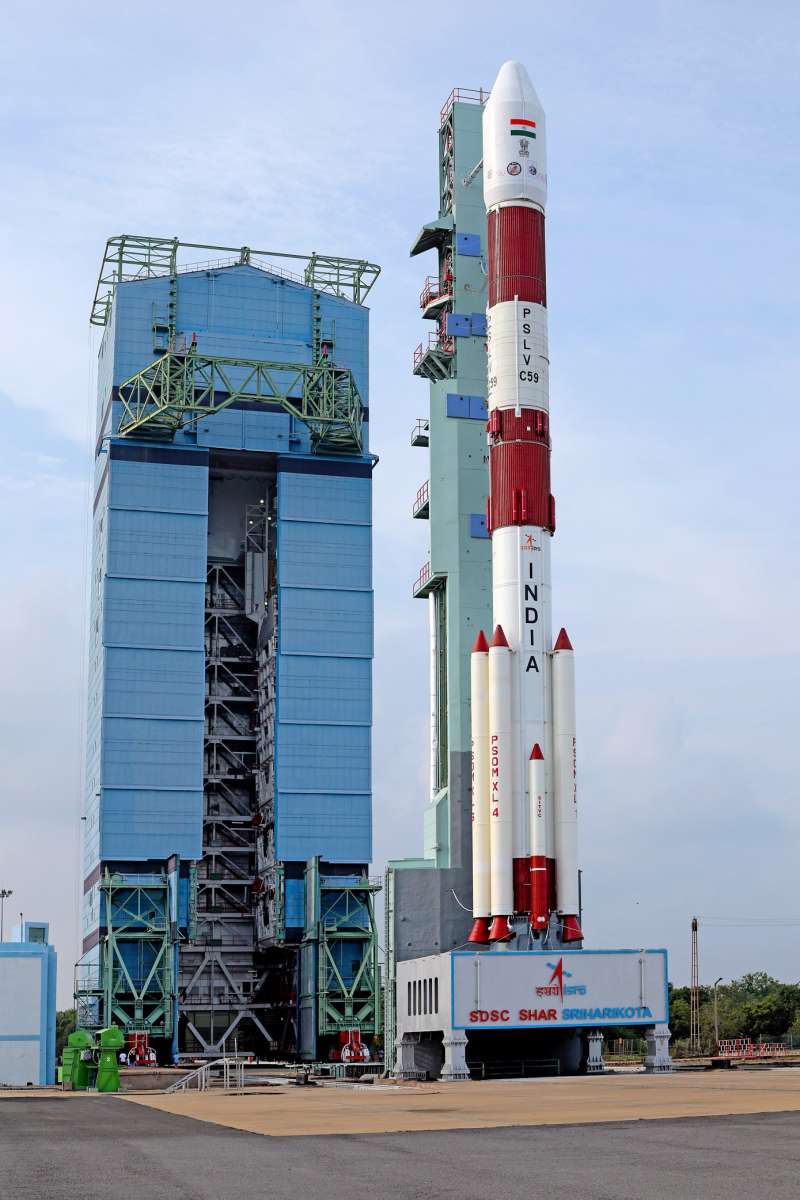The minister acknowledged that global factors are impacting the economy, and said ‘these are realities’…reports Asian Lite News
The Indian economy, compared to the situation prevailing in many of our peer groups and in many of the developed economies, is definitely much better, said Finance Minister Nirmala Sitharaman while responding to the short-duration discussion on the rising prices of essentials in the Rajya Sabha on Tuesday.
She said that nobody is in denial about the price rise.
“We are not running away, we are here to discuss and nobody is saying and nobody is in denial about the price rise”, said Sitharaman.
The finance minister said that the government has adopted a targeted approach based on ground-level inputs to tackle retail inflation which is ruling at around 7 per cent.
“Four is the median point considered generally for inflation, sometimes minus two or plus two is what is normally accommodated. And, we are at 7 with some efforts or it can be slightly more than 7 but we have made sure with Reserve Bank and government put together or taken enough steps to make sure that it is kept at 7 or below 6 ideally,” she said.
The minister acknowledged that global factors are impacting the economy, and said ‘these are realities’.
While discussing GST, the FM said that all states agreed to levy 5 per cent GST on labelled food items. “All states at the GST Council agreed to the proposal to levy 5% GST on pre-packed, labelled food items; not one person spoke against” said the minister. She clarified that there is no GST on loose food items.
She reiterated that there is no GST on crematoriums or mortuaries. However, if someone wants to open a new crematorium GST will be imposed. “No GST on crematorium; tax only on construction of new crematorium.”. She added that hospital beds or an ICU room with less than Rs 5,000 per day rent have been exempted from GST.
She compared the taxes on essential items in the pre GST-era and post GST and claimed that her government has lowered the cess on several items. We have contained prices of tomato, onion, potato, said Sitharaman comparing the rates with those in November 2013.
On the Jal Jeevan Mission, the finance minister said that in 2019, there were only 3.2 crore households getting piped water but now 9.6 crore households are getting piped water under the Jal Jeevan Mission.
The Energy Conservation (Amendment) Bill to be tabled in LS
The Government is scheduled to introduce The Energy Conservation (Amendment) Bill, 2022 in the Lok Sabha on Wednesday.
While Power Minister R.K. Singh will move the bill on energy conservation, Education Minister Dharmendra Pradhan will table a Bill to amend the Central Universities Act, 2009 .
Amid the growing energy needs and changing global climate landscape, the Centre has identified new areas to achieve higher levels of penetration of Renewable energy by proposing certain amendments to Energy Conservation Act, 2001. The objective will be to enhance demand for renewable energy at the end- use sectors such as industry, buildings, transport etc.
Ministry of Power has prepared amendments, after consultations with stakeholders. The proposal includes defining minimum share of renewable energy in the overall consumption by the industrial units or any establishment.
The proposed amendments would facilitate development of Carbon market in India and prescribe minimum consumption of renewable energy either as direct consumption or indirect use through grid. This will help in reduction of fossil fuel based energy consumption and carbon emission to the atmosphere.
India stands at the forefront of addressing the climate change and has committed to an ambitious Nationally Determined Contributions (NDCs) of reducing emission intensity by 33-35 per cent in 2030 against the levels of 2005.
Apart from this government business reports of standing committee of External Affairs on subject of Welfare of Indian Diaspora: Policies, schemes will also be presented.
Reports of Standing committee on Finance and Housing and urban affairs will also be tabled.
300 high-yielding seeds of pulses notified for commercial cultivation
Union Agriculture Minister Narendra Singh Tomar on Tuesday said that a total of 304 high-yielding varieties of pulses have been notified for commercial cultivation in the country since 2014.
In a written reply in Lok Sabha, Tomar said, “The high-yielding varieties of pulses included 81 of Gram, 50 of Arhar, 38 of Mung, 35 of Urd, 33 of Lentil, 23 of Field Pea, 19 of Cowpea and 25 of other pulses.”
During this period, a total of 20 high yielding varieties of pulses including six of Gram, five of Arhar, three of Faba Bean, two each of Field Pea and Mung and one each of Lentil and Urd have been notified for commercial cultivation in the state of Bihar.
The Minister said that the Indian Council of Agricultural ResearchI (CAR) is mandated to produce breeder seed of different crop varieties against the indent from the Department of Agriculture & Farmers Welfare (DA&FW).
The breeder seed is provided to various public and private seed producing agencies and certified quality seed categories and distribution to farmers.
During the last five years, total 96,731 quintals of breeder seed of high yielding varieties of pulses were produced by the National Agricultural Research System (NARS) against the total indent of about 77,499 quintals and supplied to the seed producing agencies for further multiplication into foundation and certified quality seed categories and distribution to farmers.
About 2,329 quintal breeder seed of pulses was produced during the last five years against the total indent of 1,562 quintals by the state of Bihar.
ALSO READ-Ukraine war: Nirmala warns of impact on Indian economy
